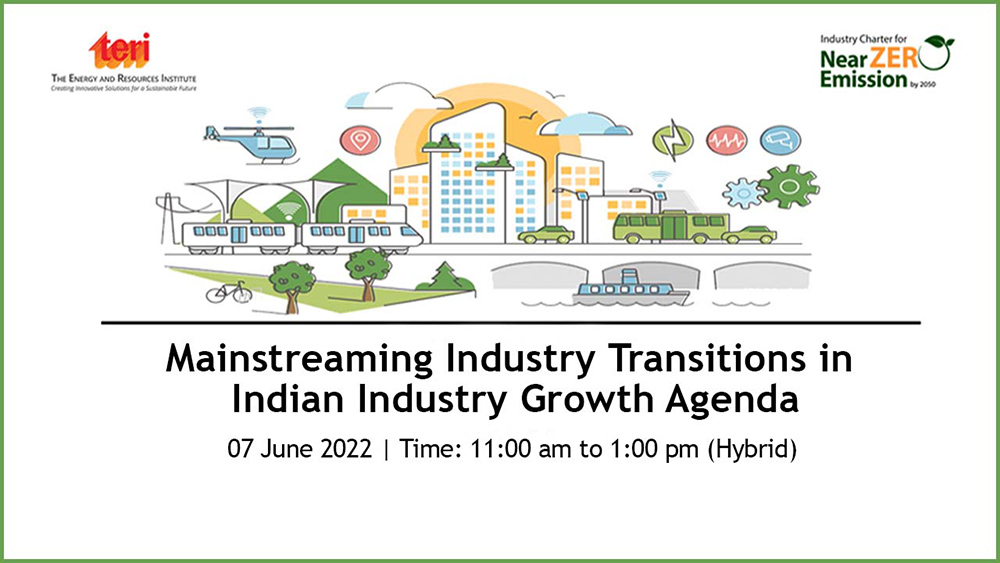Workshop on Mainstreaming Industry Transitions in Indian Industry Growth Agenda

TERI Council for Business Sustainability organized a participatory workshop on Mainstreaming Industry Transitions in Indian Industry Growth Agenda on 07 June 2022 in hybrid mode. At the workshop senior representatives from Indian industry deliberated on the key drivers to accelerate adoption of solutions for industry decarbonization, while taking stock of their existing voluntary low carbon initiatives. The workshop witnessed participation of over 25 Indian companies – many of whom have already announced their net zero targets, while some are still working towards setting up their targets.
The discussions of the workshop were moderated by Mr RR Rashmi, Distinguished Fellow, TERI. Discussions at the workshop pointed out that the Indian industry have internalized the strategy for achieving decarbonization through various means. Some are relying either on internal carbon pricing or the broader goals of sustainability. The workshop witnessed several offerings by solution providers, indicating that the capacity is being created within India to help the industry move forward on their decarbonization pathways. The industry participants pointed out the important areas of interventions, either in terms of technology innovations or finance – which shall form important building blocks of net zero solutions. The participants opined about fiscal support, regulatory support, policy interventions, demand for low carbon products, uniformity in standards and labelling and importance of low carbon fuels to achieve net zero.
To advance large scale adoption of low carbon technologies in Indian industries, TERI and World Bank have been partnering to create various knowledge platforms. Mr Thomas Kerr, Lead Climate Specialist in the World Bank Group shared importance of industry decarbonization and carbon markets for developing countries. He emphasized the following key messages:
1. In a global pathway compliant with the Paris Agreement, developing country industry emissions will need to fall by nearly 60%
2. Innovation will be critical for industries to decarbonize while improving their competitiveness
3. A combination of policies supporting innovation, directly as well as creating markets for relevant products and services are needed to support industrial decarbonization in developing countries.
Well ahead of India’s formal announcement on achieving net zero emissions at COP26 in Glasgow, with the initial support of a few progressive Indian corporates, TERI had put together an ‘Industry Charter for Near Zero Emissions Ambition by 2050’. Under this voluntary pledge, organizations have committed to pursue a set of vigorous decarbonization measures, both at the company level and collectively, to set an example for industry peers to contribute in meeting the objectives of the Paris Agreement.
If India is to remain globally competitive and achieve sustainable growth, within the constraints of the environment, future industrial strategy should prioritise greater resource efficiency in the heavy industry sectors. TERI plans to organize a series of such workshops to take forward the agenda of industry transitions in the context of India’s industrialization and development agenda.
